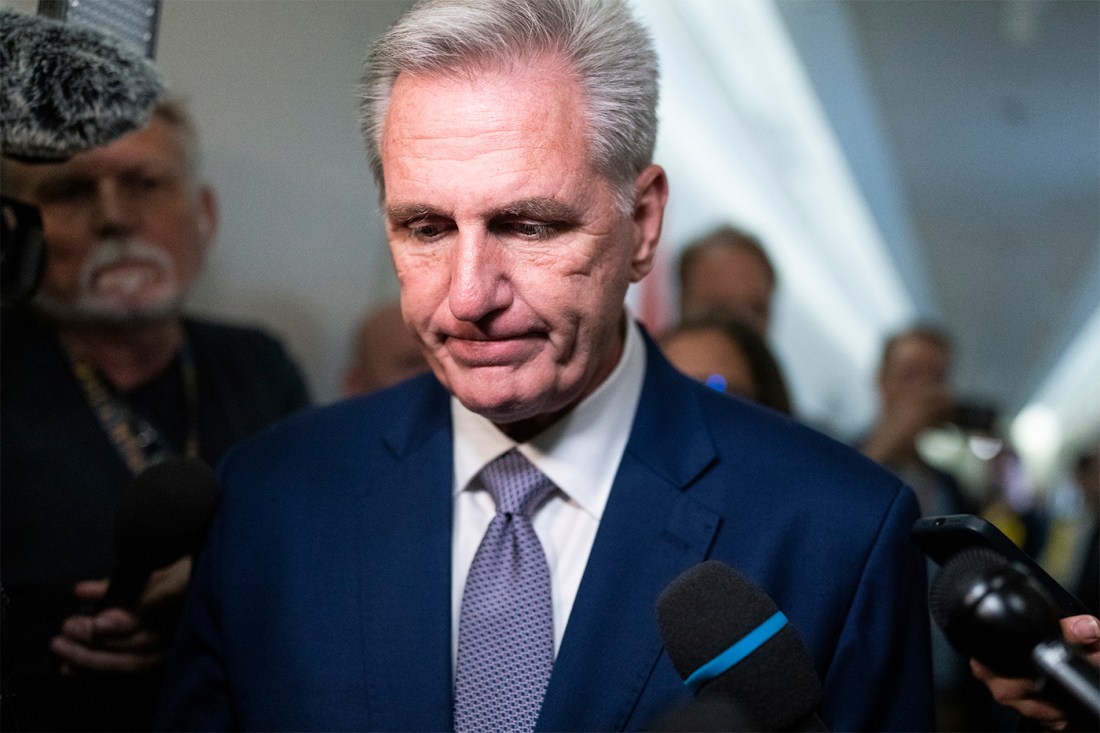The drama of the House presidency and the wave of Republican departures have seized headlines recently, but another story in the nation's capital is quietly unfolding: the Democratic exodus from Congress, says Nick Beauchampassociate professor of political science at Northeastern University.
In terms of simple numbers, Beauchamp, whose congressional election models have incorporated retirement data, suggests that 2023 so far doesn't look like an outlier for total retirements. But Democratic retirements, he says, are up this year compared to the past three election cycles — a fact that may be overshadowed by the GOP drama.
“The media kind of exaggerates Republican retirements … but what's really happening is that there's a higher percentage of Democrats quietly retiring than Republicans,” Beauchamp says.
News organizations may overlook the ratio of Democratic retirements because, Beauchamp says, “they're more invested in the story of Republican retirements.”
Overall, he says Senate Democratic retirements are likely to be far more significant than House Republican retirements in 2024.
As of Dec. 7, there are 38 lawmakers — 31 representatives and seven senators — who are not seeking re-election. Of the seven senators, five are Democrats who are retiring from public life altogether, according to Ballotpedia. Of the two Republicans, Mike Brown is running for governor of Indiana, and Mitt Romney's future is uncertain.
Among the democratic retirements, US Senator Joe Machin's is the most threatening to the party given its ability to continue to tow the line at now largely red state West Virginia.
On the House side, former Speaker Kevin McCarthy, the only speaker forced to step down from the role, is last high profile legislator not to seek re-election. The announcement of his departure last week follows the expulsion of former Republican Rep. George Santos, who was expelled for ethics violations. Overall, 21 House Democrats are not seeking re-election compared to 10 Republicans.
Representatives from both sides have offered theories as to what motivated the departures and what they mean. Viet Shelton, a spokesman for the Democratic Congressional Campaign Committee, highlighted the “chaos and dysfunction” in the Republican caucus, while a Republican counterpart said the Democratic resignations “make their party's rise from the minority even more difficult.” sharper”.
Research shows that congressional retirements are more likely to happen before competitive elections — not in cases where reelection is certain, Beauchamp says.


“When an incumbent retires and is replaced by a member of the same party, they tend to do less well,” he says. “But the other thing about the 'incumbent effect' is that it's somewhat exaggerated by the fact that when an incumbent expects to lose, it tends to withdraw strategically.”
In 2018, the first midterm of Donald Trump's presidency, the reason for retirements was about 3-2 Republicans to Democrats in the House, most notably former House Speaker Paul Ryan (there were zero Democratic retirements in the Senate, but three Republican ones). In 2020, the ratio was about 3-1 Republican to Democrat in both chambers, Beauchamp says.
“That's kind of weird because it indicates a big loss for the Republicans, even though nobody really knew what was going to happen in 2020,” Beauchamp says. “In a way, that index was pointing to a bigger Democratic victory than people seemed to think.”
Then in 2022, the retirement ratio was about 3-2 Democrats to Republicans in the House and 1-5 Democrats to Republicans in the Senate.
“During midterms, there are generally more defections from the president's party as they anticipate tough races or losses,” says Beauchamp. “During presidential elections it's less systematic, maybe because it's less easy to know how your party is going to do. But my forecasting model suggests that even controlling for intermediates, more retirements mean more potential losses for whichever party has more retirements.”
Beauchamp acknowledges that the reasons for retirement matter. There is a big difference, he says, between resigning to pursue higher office and leaving politics altogether.
Tanner Stening is a reporter for Northeastern Global News. Email him at t.stening@northeastern.edu. Follow him on X/Twitter @tstening90.



